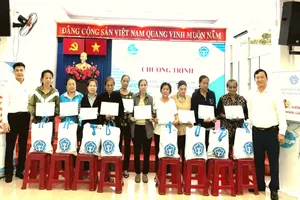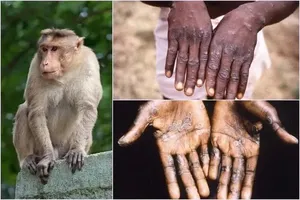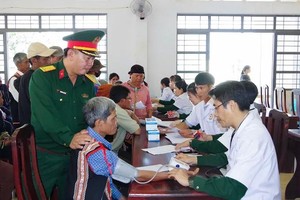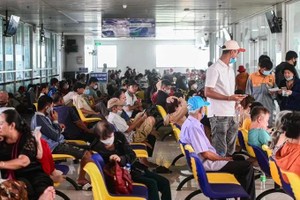Vietnam Hemophilia Association and the National Institute of Blood Transfusion and Hematology yesterday held a meeting in Hanoi with theme "Forming a family to support people living with hemophilia" in response to the World Hemophilia Day.
This activity has been held across the globe since 1989 in order to raise people’s awareness of the disease and hereditary bleeding disorder, aiming to help better treatment for hundreds of thousands of people who are living with the disease.
Dr. Nguyen Anh Tri, director of the National Institute of Blood Transfusion and Hematology cum chairman of the Vietnam Hemophilia Association said that the country currently has more than 6,000 people living with Hemophilia disease but only 40 percent of them are detected and received proper treatment.
Dr. Tri stressed that people with Hemophilia can live independently and contribute to the society if they receive assistance from the community. Therefore, we should give them a hand and
basis treatment to them.
| Hemophilia is a group of hereditary genetic disorders that impair the body's ability to control blood clotting, which is used to stop bleeding when a blood vessel is broken. Platelets are small blood cell fragments that form in the bone marrow—a sponge-like tissue in the bones. Platelets play a major role in blood clotting. When blood vessels are injured, clotting factors help platelets stick together to plug cuts and breaks on the vessels and stop bleeding. |
























